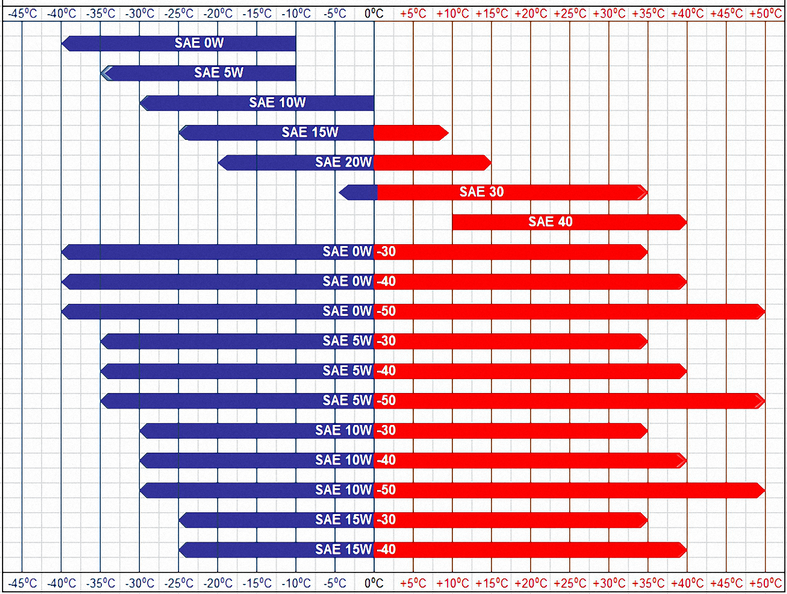Lol I have an old JD 212 up north that burns more oil than gas every time I get motivated to crack it open and maybe rebuild it I lose all motivation cause I find other projects. So had some non synthetic 20w-50 lying around from hydrostatic transaxle fluid replacement and I use that instead of 30w its cut the oil consumption by about 1/3rd and still runs good enough for occasional seasonal use.
You are using an out of date browser. It may not display this or other websites correctly.
You should upgrade or use an alternative browser.
You should upgrade or use an alternative browser.
question on going from conventional oil to synthetic on smaller engines
- Thread starter tstex
- Start date
- Views: 13272
More options
Who Replied?
/ question on going from conventional oil to synthetic on smaller engines
#51
rScotty
Super Member
- Joined
- Apr 21, 2001
- Messages
- 9,656
- Location
- Rural mountains - Colorado
- Tractor
- Kubota M59, JD530, JD310SG. Restoring Yanmar YM165D
That's how temperature and viscosity work in oils all right, and it used to be a lot bigger problem before multi-weight oils came on the market. It is exactly why multi-weight oils like 5w-50 were developed.When you compare that way, maybe.
Take 5W oil and pour it in a container when it is 0deg out.
Now, take 50W oil and pour it in a container when it is 0deg out. The 50W won't even flow probably, while the 5W will.
When it is 0deg out you don't want 50W in your crankcase because it won't flow through the engine to lubricate.
Grumpycat
Super Member
I didn't compare 5W to 50W. I compared 5W at its rating temperature to 40 not-W at its rating temperature. The 5W is molasses at that temperature.When you compare that way, maybe.
Take 5W oil and pour it in a container when it is 0deg out.
Now, take 50W oil and pour it in a container when it is 0deg out. The 50W won't even flow probably, while the 5W will.
When it is 0deg out you don't want 50W in your crankcase because it won't flow through the engine to lubricate.

Oil
most important property of a lubricant. Understanding viscosity can help reduce wear, improve fuel economy, and make more horsepower.www.motorstate.com
50W is not 50-weight but an oil which pours down to the same temperature as a 50-weight oil would flow.
50W and 50-weight are totally different measurements. It might be the same oil, it might not.
TimberFarm
Platinum Member
- Joined
- Apr 13, 2022
- Messages
- 601
- Tractor
- John Deere 3203, Jinma 354 LE, LS MT573
I didn't compare 5W to 50W. I compared 5W at its rating temperature to 40 not-W at its rating temperature. The 5W is molasses at that temperature.
50W is not 50-weight but an oil which pours down to the same temperature as a 50-weight oil would flow.
50W and 50-weight are totally different measurements. It might be the same oil, it might not.
Semantics.
Go to the auto parts store ask for a case of 50weight oil...guess what they will give you. It's in the lexicon now.
Grumpycat
Super Member
Language is a mathematical equation. If you use the wrong variable names you get the wrong answer.Semantics.
Go to the auto parts store ask for a case of 50weight oil...guess what they will give you. It's in the lexicon now.
If you ask for 50 weight and get 50W then the monkey behind the counter lacks the intellect or understanding of his job.
rScotty
Super Member
- Joined
- Apr 21, 2001
- Messages
- 9,656
- Location
- Rural mountains - Colorado
- Tractor
- Kubota M59, JD530, JD310SG. Restoring Yanmar YM165D
What does the W stand for in 50W?Language is a mathematical equation. If you use the wrong variable names you get the wrong answer.
If you ask for 50 weight and get 50W then the monkey behind the counter lacks the intellect or understanding of his job.
Grumpycat
Super Member
“Winter” “W” in SAE/API viscosity means the viscosity grade represents the cold temperature the oil flow. As I said earlier 5W is -30°C. Pretty darn cold.What does the W stand for in 50W?
”weight” or “wt” represents operating temperature viscosity.
I posted a link to the reference earlier but here it is again:

SAE J300 - Wikipedia
SylvainG
Platinum Member
My B&S mower is 31 years old and beside changing the carb film twice and push primer bulb once, has always started on first pull. I put 30 grade conventional oil from whatever I can get my hands on in the spring.
In my 27 years old Tecumseh snow blower, same but 5W30 conventional oil. It starts right away too.
In my 27 years old Tecumseh snow blower, same but 5W30 conventional oil. It starts right away too.
Grumpycat
Super Member
Where do you get "40W"? I've never seen it. Why do you use a winter rated oil in hot Texas?Synthetic is the way to go. I run Rotella T6 in my F250 and the tractor. In all my small engines I run straight 40W. Of course this is Texas and it gets hot in the summer, and not much use in the winter.
I have seen "40 weight". That is not the same as 40W.
